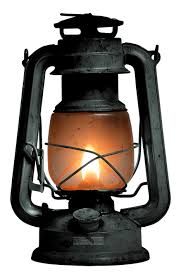
The Economics Of Recycling Cooking Oil
There is no doubt that cooking oil is a normal item in one’s grocery list. Fried food is one of the regular dishes served in many households and especially in many restaurants. Simply put, it is hard for you to get away from not using cooking oil.
According to PR News Wire the global cooking oil market is stated to grow at a CAGR of 5.5% from 2021 to 2028. As this figure indicate, cooking oil use is growing at a very fast rate.
There are a few known ways on how cooking oil is recycled and reused. The biggest two of them would be recycling cooking oil so that it could be used for cooking again, and the other one is to recycle it as a biodiesel.
For Use As Cooking Oil Again
 Cooking oil can be reused over and over again for cooking. The bad part about frying is that the cooking oil becomes mixed up with the bits of the food it is frying. This causes it to be contaminated and become impure.
Cooking oil can be reused over and over again for cooking. The bad part about frying is that the cooking oil becomes mixed up with the bits of the food it is frying. This causes it to be contaminated and become impure.
I know that almost anyone who has become an adult has at least experienced once trying to fry food. Everyone knows that bits of your fried meat for example gets mixed in with the cooking oil. Even meat itself is filled with meat oil that mixes with the cooking oil.
The more you reuse the cooking oil, the more contaminated it becomes until you feel the difference in the taste of the food you have just fried. You can easily taste the difference between food fried with new, relatively new or heavily contaminated cooking oil.
Recycling cooking oil in this instance is relatively easy. There are a number of YouTube videos that show how to purify/recycle used cooking oil using only a filter and corn starch. The bigger contaminants in cooking oil can easily be filtered or taken out using a filter.
The corn starch is used to trap the micro-contaminants in your contaminated cooking oil. The corn starch is added to the contaminated cooking oil which is heated minimally. As the contaminated cooking oil is heated, it is stirred so that the corn starch can mix with it and trap the contaminating particles.
Videos on How To Recycle Cooking Oil Using Items Like Corn Starch:
![]() Here are two videos from the YouTube search keywords: “recycling cooking oil” which shows how to recycle/purify cooking oil using only a sieve and/or corn starch:
Here are two videos from the YouTube search keywords: “recycling cooking oil” which shows how to recycle/purify cooking oil using only a sieve and/or corn starch:
1. YouTube Video: How can I Clean and Reuse Frying Oil? The Easiest Way to purify / recycle your cooking oil
2. YouTube Video: How to Recycle Your Used Cooking Oil
The videos are pretty straightforward and easy to understand. There are still other videos on YouTube on how to recycle/purify cooking oil like using lemon for example, but I leave it to you to do your further viewing on YouTube.
But one thing to note is that you cannot forever recycle/purify used cooking oil. There are plenty of medical articles online that warn against recycling cooking oil for cooking purposes again over and over.
Recycling Cooking Oil For Use As Biodiesel
 There have been people who recycle cooking oils for use as biodiesel for their cars. There are also plentiful videos in YouTube about these people. Here is one video for example:
There have been people who recycle cooking oils for use as biodiesel for their cars. There are also plentiful videos in YouTube about these people. Here is one video for example:
YouTube Video: How to make Biodiesel at Home in 5 Minutes..! | Biofuel From used Vegetable oil / Cooking Oil
The woman in this video used Lye and Methanol to create car fuel using used cooking oil. According to her, it just cost her 10% of what she would normally spend on regular car fuel.
This is not the only video available in YouTube. There are videos of entire companies engaged in the purification and conversion of used cooking oil into biodiesel. One attractive aspect of using biodiesel for your vehicle is that used cooking oil biodiesel is very cheap compared to regular fuel.
But don’t be lulled into thinking that biodiesel is all good for your vehicle, simply put, normal car engines were not made to be ran completely with biodiesel. Your vehicle may suffer from performance if you use only biodiesel.
Recycling Cooking Oil As An Oil For Burning
 Cooking oil is well, an oil which burns. Therefore, you can use it to burn things or burn it itself. You can for example use a lamp which burns cooking oil to light up the room or cook things. Here is a video I found in YouTube as an example:
Cooking oil is well, an oil which burns. Therefore, you can use it to burn things or burn it itself. You can for example use a lamp which burns cooking oil to light up the room or cook things. Here is a video I found in YouTube as an example:
YouTube Video: Make a lamp from old cooking oil and used jeans, GREAT way to recycle
As you can see, you don’t have to purify much or don’t even have to purify used cooking oil to find a use for it. The beauty of using used cooking oil as a lamp or as a kerosene stove fuel is that you can actually mix cooking oil with kerosene to fuel your lamp or stove.
I might receive some or a lot of flak for suggesting that people still use kerosene lamps and stoves, but the reality is that there are still many people from many parts of the world that don’t have access or the financial resources to use modern cooking methods such as gas and electricity.
Many people are still locked into using firewood, charcoal, and kerosene as their primary source of cooking and lighting fuel. These people are in the developing countries and most probably be in the rural areas where they are economically disadvantaged.
Imagine A Life Run By Used Cooking Oil and By Kerosene
![]() According to the NCBI or National Center for Biotechnology Information of America, there are about 500 million households globally who still use kerosene to run their households. This figure does not include the use of kerosene to fuel vehicles including airplanes.
According to the NCBI or National Center for Biotechnology Information of America, there are about 500 million households globally who still use kerosene to run their households. This figure does not include the use of kerosene to fuel vehicles including airplanes.
Now imagine if some of these households would use used recycled cooking oil in place of kerosene. Not only will they be able to save money, but they would also have a healthier option because cooking oil is not as toxic as kerosene.
Imagine still if people used a device which serves as cooking, lighting and heating at the same time which uses either or both kerosene or used cooking oil. This device could be simple enough to build cheaply, but would be an essential part of any household.
Besides, there might come a time like during emergencies where cooking gas and electricity might not be available. It is still best if people have a backup solution for their cooking, heating and lighting needs which could be used cooking oil and kerosene.
And this is not an entirely strange idea, when I was young and when the typhoons and storms were still very strong, we find our kerosene lamps and stoves to be very indispensable when the electric poles get toppled and the cooking gas supply gets shut down.
Recycling Used Cooking Oil As Soap
 Here is another video I found in YouTube. This is a very simple but very clear video on how to make soap made from recycled/used cooking oil and lye. The video is only a few minutes long and I strongly suggest that you watch the video. It is very enlightening:
Here is another video I found in YouTube. This is a very simple but very clear video on how to make soap made from recycled/used cooking oil and lye. The video is only a few minutes long and I strongly suggest that you watch the video. It is very enlightening:
YouTube Video: How To Make Soap From Recycled Cooking Oil
There are still other videos I found on YouTube which also shows how to use recycled cooking oil into soaps, but the above video that I have just mentioned is one of the best that I have seen so far.
As can be seen from the video, the ingredients are simple and can be made using simple kitchen tools. All you need is used cooking oil and lye and you are ready to go. Lye by itself is very easy to source. E-commerce stores are selling them at affordable prices.
The Bigger Question
 It is beyond the scope of this article to discuss all the uses of recycled cooking oil, but they have been used in the production of feedstocks and fertilizers and have also been used to make products such as cosmetics and other beauty and other personal items.
It is beyond the scope of this article to discuss all the uses of recycled cooking oil, but they have been used in the production of feedstocks and fertilizers and have also been used to make products such as cosmetics and other beauty and other personal items.
I think the bigger question that must be asked instead of the question of what are the uses for recycled cooking oil is this: “Where can I access a large supply of used cooking oil?” This is because there is a definite market for used cooking oil, but to source it, is an entirely different problem altogether.
It is a given that every household has a big probability that they have a bottle of used cooking oil just lying around. Restaurants are even a bigger catch. The stocks of used cooking oil they produce everyday must be a lot.
But let us use one big example for the moment, McDonalds, everyone knows that almost all the food in their stores are deep fried. From the burgers, chickens to the fries, they are all cooked using cooking oil.
But according to McDonalds, they recycle their cooking oil to be used as fuels for their delivery vehicles. I guess McDonalds is not only the restaurant which has a recycling policy, there must be other restaurants too.
The Good And The Bad News
 The good news for you is that not all restaurants have such a policy. In fact, many restaurants simply do not have the resources to recycle their used cooking oil. They either sell their used cooking oil and if you are lucky, they may even give it to you for free.
The good news for you is that not all restaurants have such a policy. In fact, many restaurants simply do not have the resources to recycle their used cooking oil. They either sell their used cooking oil and if you are lucky, they may even give it to you for free.
But there is a downside to depending on restaurants as your source for used cooking oil. Since anyone who is interested in the cooking oil recycling business would naturally think first that restaurants are their best source of used cooking oils, it may become a crowded field soon.
This is why it is best that if ever you are interested in the cooking oil recycling business, you should form good relationships as early as you can with the restaurants you are targeting as your source for used cooking oil.
Just to show you how competitive the market for used cooking oil is, in developing countries like the Philippines, there are vendors in wet markets there which sell used cooking oil to be used as cooking oil again.
A person living in a developed nation may balk at this moneymaking idea, but this just goes to exemplify how much there is a demand for used cooking oil. So think of your used cooking oil as a precious resource and don’t throw it away hastily.
How To Collect From Households
 Since collecting from restaurants and other establishments that use cooking oil on a mass scale may be very competitive, you could try collecting from households instead. But there is an immediate problem at hand, households don’t produce a lot of cooking oils on a daily basis.
Since collecting from restaurants and other establishments that use cooking oil on a mass scale may be very competitive, you could try collecting from households instead. But there is an immediate problem at hand, households don’t produce a lot of cooking oils on a daily basis.
The obvious solution is to collect from a household only after they have produced significant amounts of used cooking oil. Normally, the households you would choose have a big container for used cooking oil or you may give them a big container yourself.
The first thing you need to do is to inform the households that you are taking used cooking oil from that you intend to pay a certain amount for the used cooking oil that they store and not throw away.
Thus, your problem is all about logistics. The supply of used cooking oil from households is there, you just need to collect it in an efficient way that you would earn money from the process.
Since this business is hard to scale for big businesses, an opportunity exists for small to medium sized business to go after the business of collecting used cooking oil from households.
Conclusion
 Used cooking oil can be liquid gold to the right entrepreneur. There is not only a steady but an increasing supply of used cooking oil. It is just a matter of being able to collect on the abundant supply of cooking oil that can be found on the many cooking establishments and homes.
Used cooking oil can be liquid gold to the right entrepreneur. There is not only a steady but an increasing supply of used cooking oil. It is just a matter of being able to collect on the abundant supply of cooking oil that can be found on the many cooking establishments and homes.
It is predictable that collecting used cooking oil from cooking establishments such as restaurants may become competitive in the future. Your last option is to find a systematic way of collecting from households.
You might also like to read the article:
